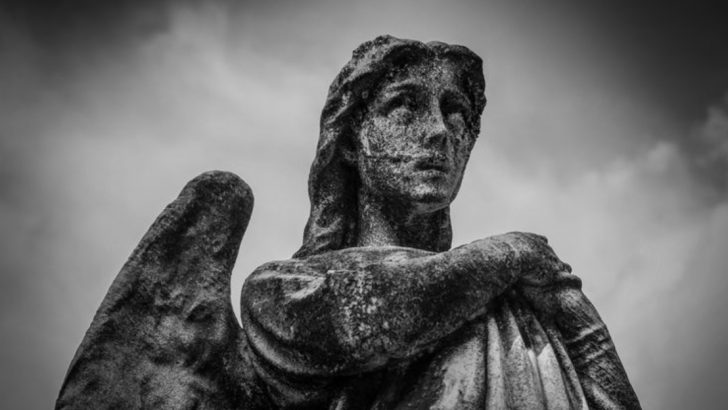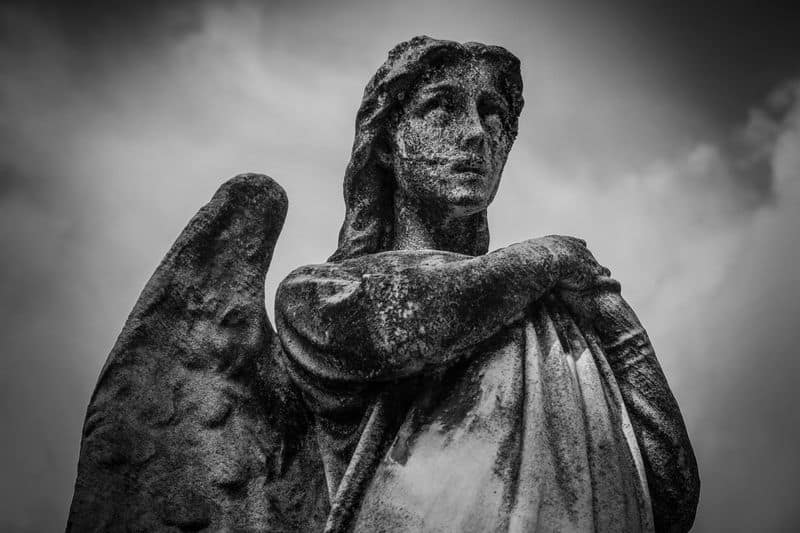Angels fascinate people across cultures and religions, appearing in artwork, movies, and personal beliefs.
Many of our common ideas about these heavenly beings come from art, literature, and popular culture rather than scripture.
What we think we know about angels often differs greatly from what the Bible actually says about them. Let’s explore five widely held beliefs about angels that surprisingly have no biblical foundation.
1. Humans Become Angels When They Die
The heartwarming notion that our departed loved ones transform into guardian angels watches over us from heaven lacks biblical support. Throughout scripture, angels and humans are consistently portrayed as separate creations entirely.
Psalm 8:5 specifically mentions humans being made “a little lower than the angels,” establishing a clear distinction. Angels existed before human creation and serve different purposes in God’s kingdom.
This comforting belief likely emerged from our desire to maintain connections with those we’ve lost. While the Bible does describe the afterlife for believers, it never suggests a heavenly promotion to angel status awaits us after death.
2. All Angels Have Wings and Halos
Gleaming halos and majestic feathered wings have become the universal angel uniform in paintings and Christmas decorations. Yet surprisingly, many biblical angels appear without these iconic features.
In Genesis 18-19, angels visit Abraham and Lot appearing as ordinary men—so ordinary that the hosts initially mistake them for human travelers. The famous golden halos emerged centuries later from ancient Greek and Roman art traditions, where circles of light indicated divine beings.
While some specific angels like seraphim and cherubim are described with wings, this isn’t a universal angel characteristic in scripture. Our modern angel image owes more to Renaissance painters than biblical descriptions.
3. Angels Are Mostly Female
Greeting cards and holiday decorations typically portray angels as feminine figures with flowing hair and gentle features. This representation contradicts biblical accounts where angels are consistently referred to with masculine pronouns and names.
Michael, Gabriel, and other named angels in scripture are presented as male. Not a single female angel is identified in the Bible’s pages. The feminine portrayal emerged largely during the Victorian era when artists increasingly depicted angels with softer, feminine qualities.
This artistic choice reflected changing cultural ideals about gentleness and beauty rather than biblical accuracy. The Bible presents angels as powerful messengers and warriors, not the delicate female figures common in modern imagery.
4. Angels Should Be Worshipped
Angels possess remarkable powers and serve as God’s messengers, making them seem worthy of our reverence. However, scripture explicitly forbids angel worship in multiple passages.
In Revelation 19:10, when the apostle John falls at an angel’s feet to worship him, the angel immediately objects: “Don’t do that! I am a fellow servant with you… Worship God!” This direct command reveals angels themselves reject worship.
Colossians 2:18 further warns against the “worship of angels,” classifying it as a dangerous distraction. Biblical angels consistently redirect attention toward God rather than accepting adoration for themselves—a humility that ironically makes them even more admirable.
5. Guardian Angels Follow Everyone
The comforting belief that each person has a dedicated guardian angel watching over them has become deeply ingrained in popular culture. Matthew 18:10 mentions angels associated with children, which many interpret as personal guardians.
However, this single verse doesn’t establish the comprehensive guardian angel system many envision today. While the Bible clearly shows angels protecting people in certain situations, it never states every person receives their own personal angel bodyguard for life.
Angels in scripture serve primarily as God’s messengers and agents, dispatched for specific purposes rather than permanent personal assignments. The concept of individual guardian angels developed more through medieval theology and folklore than direct biblical teaching.






